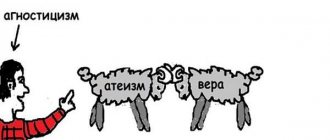Communication is the most important part of human life. Each person is part of society, it follows that all people, one way or another, interact with other people. They do this in order to achieve some good. Everyone understands the latter in their own way, which is why disagreements and conflicts arise. There are two ways to convince another person of something - by appealing to emotions, feelings, prejudices, and using other demagogic techniques.
For example, a child wants a toy in a store and starts crying, thereby provoking his parents to buy it. In this situation, his tears are a manifestation of unconscious cunning, because the child does not give real arguments, but only plays on the instincts of his parents.
Why is an assessment needed?
The main task of assessment is self-control and self-government, coupled with identifying oneself with society. We begin to talk about value judgment when it comes to concepts such as protecting honor and dignity. But most often this concept is used precisely in the scientific field in order to define certain facts and theories.
What is common between subjective and objective opinion?
- “Differing views can serve as an excellent common platform.” A. Furstenberg
The commonality between subjective and objective opinion is that one way or another, both the first and second are the product of human thinking. Any objective point of view is based on one or another number of subjective opinions. It is precisely because everyone’s thoughts can be beneficial that we should listen carefully to each person. There is no need to stop communicating with a person just because his opinion seems wrong.
In addition, many people believe that their subjective opinion is objective. In this way they deceive themselves.
A useful skill for a person is the ability to distinguish between one’s personal point of view and objective reality.
The most important element that connects objectivity and subjectivity is that they arise under the influence of the reality that is common to all people. This allows us to compare different points of view, and also to assert that an objective opinion exists at all.
For example, a man once worked as a cashier and got a bad boss. After this, the person developed a stereotype that working as a cashier is terrible. Another person came across understanding leadership, and he formed the exact opposite opinion. The truth is in the middle, because with a leader you can be either lucky or unlucky.
Definitions
A value judgment is a person’s subjective assessment of any environmental phenomenon. Simply put, it is an opinion that is most often expressed using evaluative concepts. We are used to using them in everyday life, for example, for better or worse. In this way we explain our personal position in relation to a specific object, person or phenomenon.
Connection with other words
Words ending with -opinion:
- blackout
- darkening
- conceit
- doubt
Hypo-hyperonymic relationships
opinion reputation
What is an opinion (adjectives)?
Selection of adjectives for words based on the Russian language.
public own general other personal widespread special other high definite various opposite alien erroneous such similar good biased various kind flattering universal common perfect original authoritative wide indifferent private unflattering subjective professional solid generally accepted low world perverse unanimous unanimous bad favorable final correct modest bad interesting incorrect negative known any former false important true satisfied impartial exaggerated sincere best frank negative necessary low contradictory
What can an opinion do? What can you do with opinion (verbs)?
Selection of verbs for words based on the Russian language.
change turn out to gain have incline say change coincide adhere to reduce confirm follow mean separate coincide interest play have to demand reduce outgrow converge incline incline establish strengthen stay worth force diverge prescribe acquire develop converge appear change become obsolete accuse seem decide manage to lead form appear begin find spread appear arise depend consider prevail get happen consist speak out disperse condemn speak out reason allow exchange hinder force
Associations for the word opinion
reason given question attitude matter benefit side reason topic help people basis account council Russia calculation opinion member coelom propaganda street prince country majority presence west end creature row meeting city eye problem face choice of light America quality court society case dispute colleague village England Bob information current subject Finland hand conversation internet paris senate page school foundation leadership lord root dependence committee communication
Synonyms for opinion
aphorism view appeal view retribution reward conclusion hypothesis foresight guess insight dignity conclusion law spectacle idea image saying end critic worldview morality thought intention moral teaching environment review attitude paradox posture position thought understanding concept statement proposal representation principle request placement reasoning situation consideration state court judgment thesis satisfaction inference discretion doctrine calculation report discretion
Hyponyms for opinion
- reputation prejudice
Scope of use of the word opinion
General vocabulary Diplomatic term Legal term Advertising Politics
What kinds of judgments are there?
Value judgments are usually divided according to their direction. We can talk about three types:
- Factual or objective judgments record those events that actually happened in life. Simply put, an event that was captured by people or special devices, and also stored in any form or has evidence. An actual theoretical value judgment may be the result of one's own experience or of another's. This also includes events that occur not only in real life, but can also be the plot of books, movies, advertising, and so on. For example, Harry Potter is a wizard who studied at Hogwarts. This is definitely a fact, but a fact that happened in a fantasy world.
- A value judgment is a subjective opinion, which may not even belong to a specific person, but to an entire society. This type of judgment reflects an individual perception of a fact.
- Theoretical judgments are information that is based on the experience of more than one generation. In order to have an actual evaluative theoretical character of judgments, it is absolutely not necessary to be a scientist or understand science. Even the most ordinary person can gain scientific experience.
Facts to the girl
It’s probably easier to compose facts about a girl on Instagram than about a guy, since girls for the most part are more open. In addition, many girls are terrible talkers, and they are happy to talk not only about themselves, but also about their friends. It is enough to chat with one such girl for a while. And you will learn a lot of information about her and her close friends. And based on this material it will be possible to write a lot of exciting things.
And writing facts about a friend on Instagram is not at all difficult and even pleasant. After all, you know her well and in the process you remember all your fun and pranks. There is only one thing that can complicate this process - you need to choose the most interesting thing. But everything was interesting! There is no point in writing too much information; reading more than 15 facts becomes tedious. And besides, it will be difficult to place a lot of textual information beautifully in a picture.
To the facts about your best friend, you can add a photo of you together. But this is not at all necessary - it is also permissible to post a photo of one friend or do without photographs at all, choosing instead a plain background or a beautiful picture (a bright landscape, cute animals, etc.).
Scientific experience
To understand this issue, you need to determine what scientific experience is and where to get it. Everything is simple here, usually these are any events, concepts, theories, schemes that are presented by competent people in an orderly and specific manner. The amount of knowledge in the world is crazy, but only those that have received approval from the scientific community and have been published in special publications are recognized as scientific. Theoretical judgments should not be confused with the most ordinary facts. After all, a phenomenon is a specific event, and a theory is a scheme of actions. Each person gives certain phenomena and objects an independent assessment, and it is considered as such, even if this judgment is imposed on him by the world around him.
Declension of the noun opinion
| Case | Question | Unit | Mn. number |
| Nominative | (who what?) | opinion | opinions |
| Genitive | (who, what?) | opinions | opinions |
| Dative | (to whom; to what?) | opinion | opinions |
| Accusative | (who, what?) | opinion | opinions |
| Instrumental | (by whom, what?) | opinion | opinions |
| Prepositional | (About who about what?) | opinion | opinions |
Types of evaluative opinion
Psychology characterizes value judgments as follows. They are: correct/incorrect, adequate/inadequate, optimal/suboptimal. A person characterizes each of his factual judgments and value judgments in accordance with these three positions. Even though a person may make mistakes, he always considers his opinion to be correct, adequate and optimal. Each of these characteristics has its own properties. For example, a person can form an opinion about the correctness of another person’s judgment if he compares it with the patterns of events. As for adequacy, we compare the judgment with reality, with existing facts. The optimality of an opinion is determined by the benefit of the opinion to the one who expresses this opinion. For example, if a person decides to lie, such an opinion can be called optimal if, thanks to his lie, the person achieves his goal. Examples of an inadequate and suboptimal value judgment may be as follows: something unpleasant happened to a person, but he looked at the situation with optimism and found positive aspects. In the future, this judgment helped him achieve new goals and change his life for the better. By assessing the surrounding reality, a person can manage and control himself, thereby shaping his own reality. If we talk about the most important mission of value judgment, then this is not the fight for the truth, but the justification of one’s own thoughts, words, and actions.
Objective opinion
- Objectivity is what claims to be right, reality as it is.
The second way to convince your interlocutor is to express an objective opinion that will be unbiased and correct in relation to the subject of discussion. This is what is called something that does not affect human perception, desire, consciousness. It is difficult to think impartially, but it is necessary for an argument to be a convincing and useful tool. To achieve this goal, you need to temporarily abandon personal life experience, someone’s unconfirmed words and guesses, rumors and, in general, everything that lacks accuracy and confidence. In addition, it is required to use objective sources of information.
For example, if someone wants to convince another person that it is cold outside, then they should point not to personal feelings, but to the thermometer readings. In order to prove that there are climate problems, one must be guided by documented research, and not guesswork from the media.
With the help of such systemic actions, many interpersonal problems that arose during the communication process can be solved. Cooperation is the first step to solving absolutely any problem or controversial issue that arises in the communication process. It rarely happens that you need to avoid communicating with a person. Usually this is not a way out of the situation, except in situations where the interlocutor begins to get personal, behaves inappropriately, or threatens violent actions.
What types of statements are there?
A proposition is a proposition that is expressed through narration. Typically we deal with the following types of opinions:
- Evaluative - usually involves an open or indirect expressed opinion of a particular person about what is happening from the perspective of whether it is good or bad. If the presence of a value judgment is indirect, then it can be identified only by asking additional questions to the speaker.
- Substantiating is a judgment that is supported by arguments and facts.
- Analytical – a judgment that notes the specific need for the existence of a particular phenomenon or object, its analysis and the degree of connection with other objects.
- Existential is the most common opinion in its pure form. Used to indicate the existence of a certain fact without a specific explanation.
- Definition is a judgment, the essence of which is to reveal the essence of a specific phenomenon or object.
If an opinion incorporates several of the above characteristics at once, it means it is constructive.
Educational process
Value judgment is of no small importance in the educational process. In fact, the teacher’s activity is aimed at assessment. Grades are a kind of indicator of the achievement of certain results by students, which act on students as a motivation for action. And if everything is clear with psychology, then in pedagogy there is its own classification of value judgments.
- Destructive – a teacher’s opinion about a student, which negatively affects the latter’s self-esteem. Typically, such judgments are filled with expressive vocabulary and do not in any way push the student to achieve better results; on the contrary, they contribute to the fact that he begins to act out of spite.
- A limiting judgment is based on comparing certain results with some established truth. If a student deviates from this truth, he will be reprimanded. Thus, his activities are limited to certain limits established by the teacher.
- Supportive value judgment is the most effective. For example, teachers can praise even the most careless student with the goal that he will at least glance at the textbook.
- Developmental value judgment is preferred in education. If the previous option puts the student in a certain comfort zone, where he is always ready for praise, then in this case the teacher’s comments direct the student on the path to further growth and movement forward.
As we see, value judgments play a major role in the educational process.
What are facts
It's something like a game. There are many different games on social networks (screenshot prediction, emoji rebus, describe yourself, logic tasks and others). This is one of the relatively new ones, but loved by Instagram users. It starts with the user asking his friends in Stories to prepare facts about him on Instagram. Or, on the contrary, the user invites others to like him or comment on the post, and in return he will make facts about this person.
How to write correct statements? The better you know this person, the easier it is to fulfill this request.
- First you need to remember interesting information about this person. Even some minor details will do, they can just become the “highlight”.
- Then write all this point by point in a column (this will be more accurate and easier to read). However, you can write in line, but structured text is better perceived.
- If you wish, you can also add a photo of the person, a link to their page and hashtags on the topic.
- And post it all on your page. Facts can be posted both in Stories and published as a new post in the gallery.
Don't forget about emoticons - with them the text becomes brighter and more attractive. After all, we all come from childhood and love pictures - that’s why emoticons are so popular now in instant messengers and social networks.
Examples
Scientific interpretation of facts does not take place without evaluation and expression of opinion. Every scientist, after analyzing and studying any information, must express his opinion, which he formed during the research process. That is why any material has true social facts that are mixed with the subjective opinion of the author. It is possible to identify value judgments in scientific publications through the use of the following constructions in the text: in all likelihood, it seems, most likely, there is reason to assume, I think, my point of view, and so on. Often such judgments can become the basis for explaining the influence of events on other objects or phenomena. They can be identified by the presence of the following phrases in the text: this situation can become an example, this fact explains the following, based on the above, a conclusion can be drawn, and so on.











